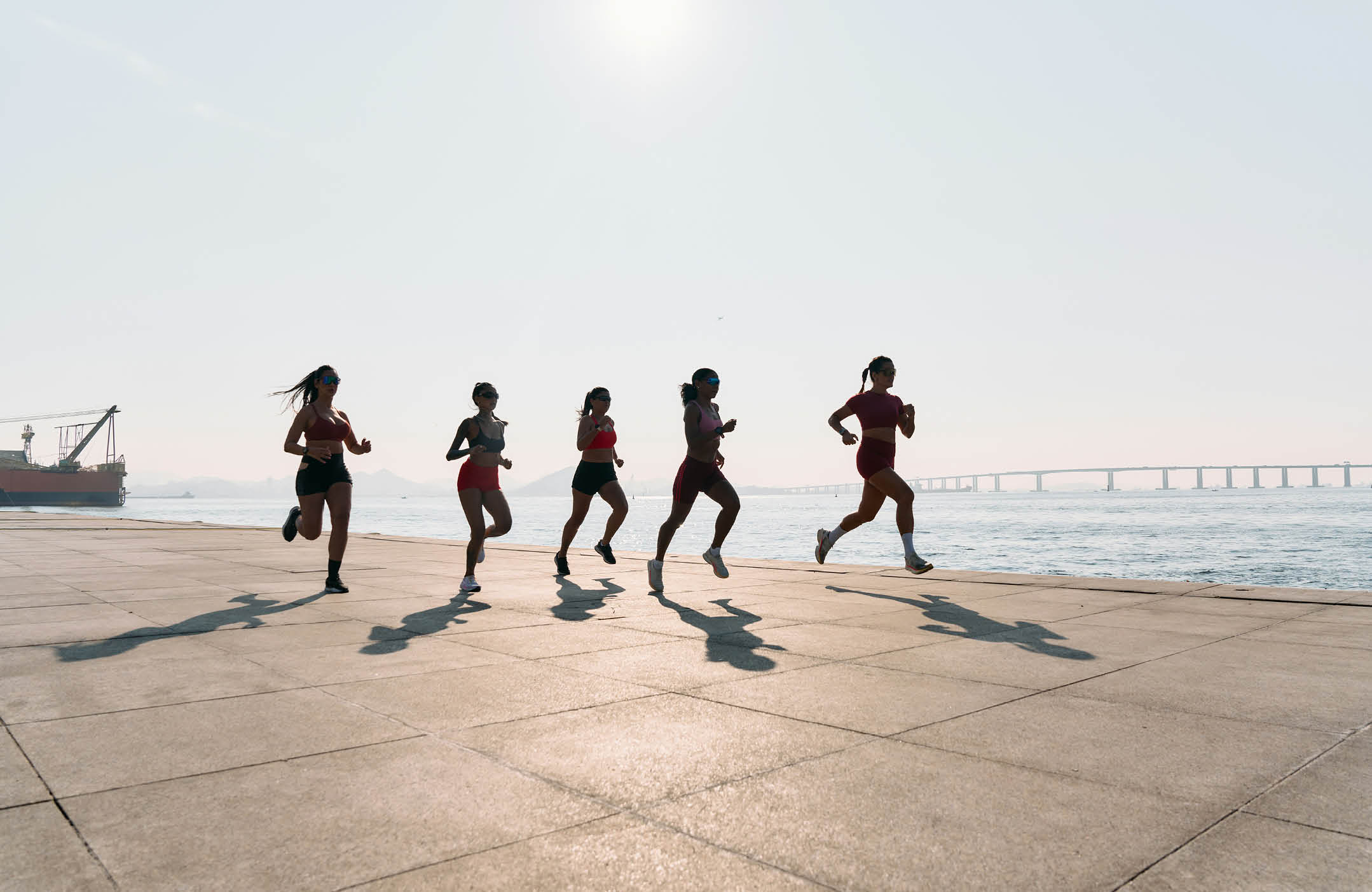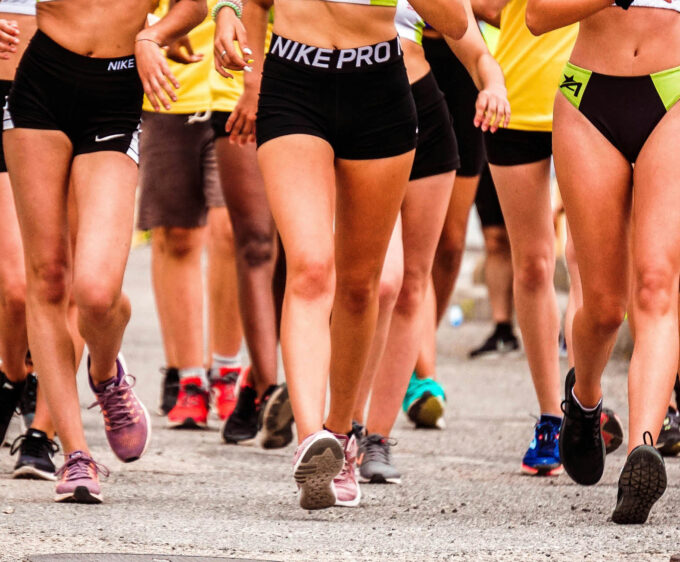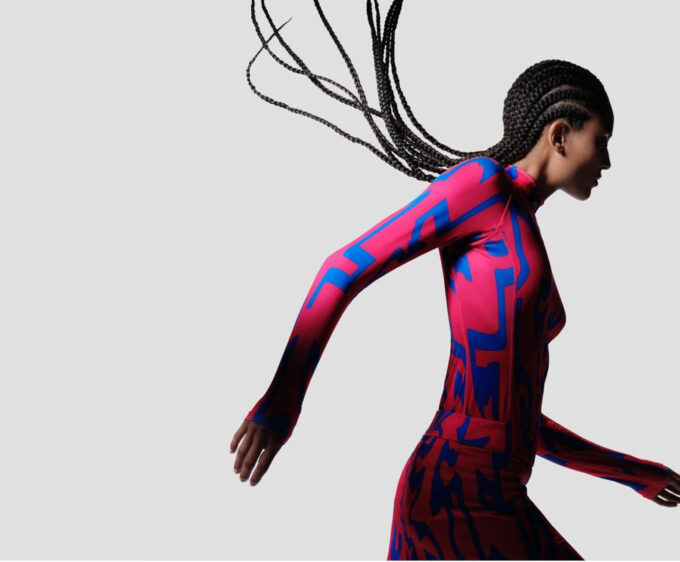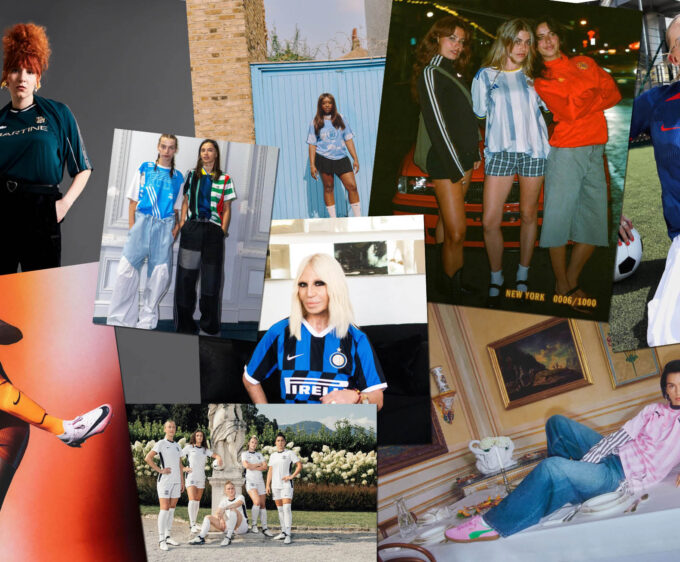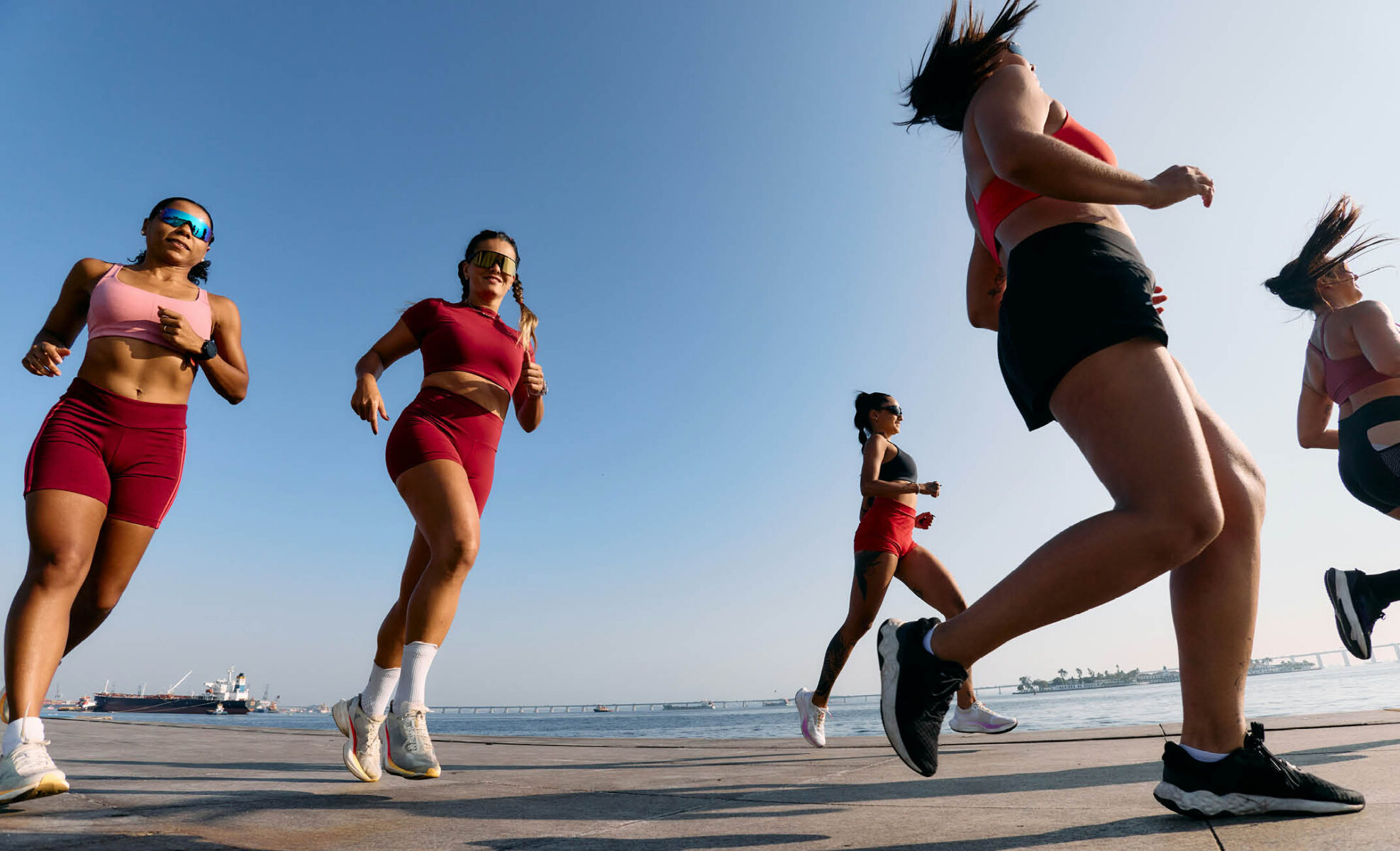
Run Clubs: Cult or Community?
Record numbers of Gen-Z and Millennials are now taking to the streets in the form of run clubs, but are we celebrating inclusivity, or have we inadvertently formed a new kind of cult? One writer finds out…
By Ellë Bolland
You’re minding your own business running around Battersea Park when, all of a sudden, a herd of Gen Zs stampedes towards you. They’re kitted out head to toe in perfectly curated outfits (also known as “fits”), which are clearly being christened for the first time as they’ve come straight out of the packet. The girls in minimal sports bras (I’m not being a prude; they’re literally named that), and the guys in their 247 Represent tanks and eye-wateringly tight cycling shorts. Of course, everyone is wearing a pair of Oakleys (note: it isn’t summer anymore, and it isn’t sunny).
Bingo, you guessed it. They are part of a run club – something I have been a part of myself, and admittedly once enjoyed at a time in my life. But now I have an issue with them. Late last year, I attended the launch of a certain brand’s run club (which I’ll refrain from naming), and I left feeling short-changed, having had no authentic conversations (the run itself was deafeningly quiet) and exploited for my email address as I left.
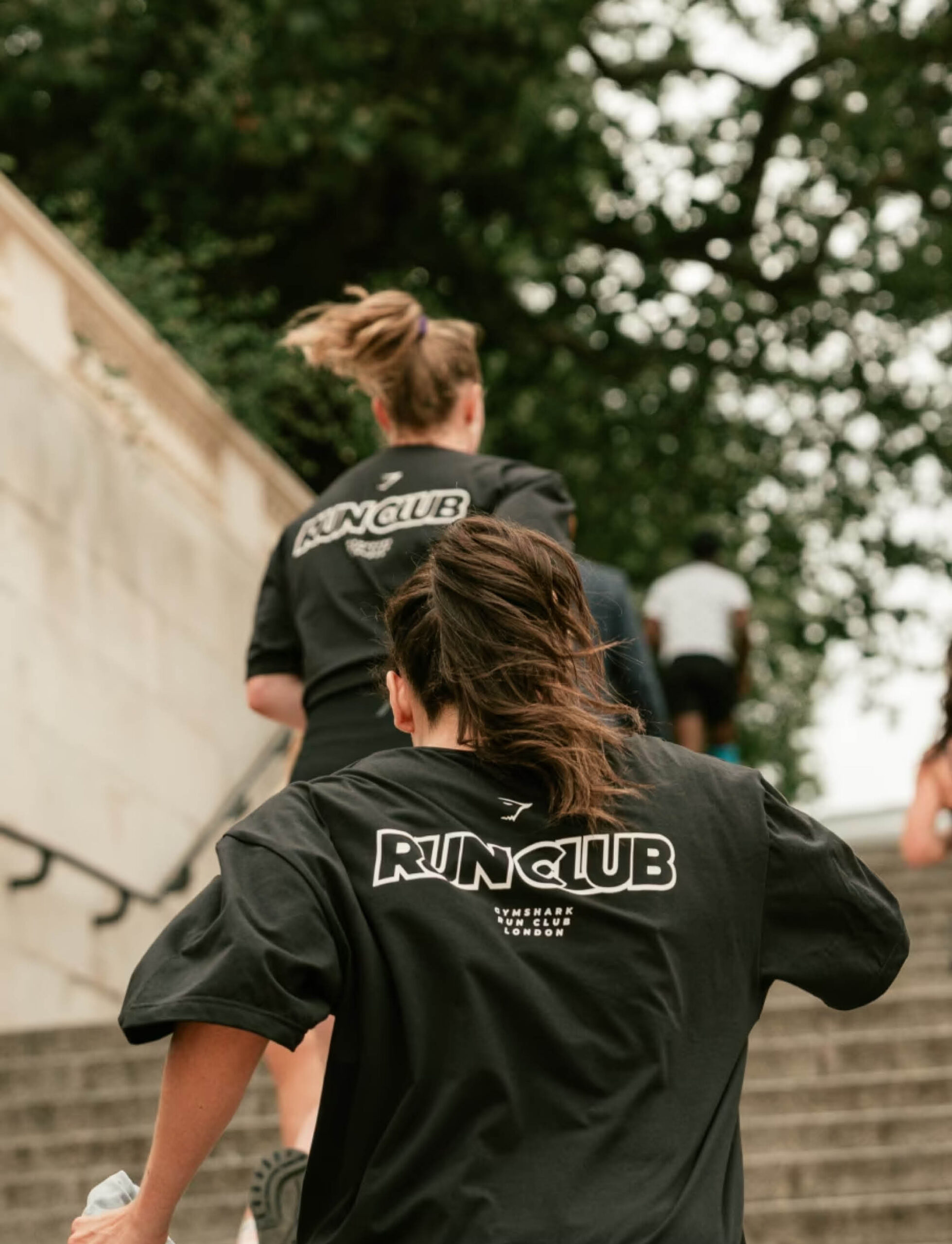
Before I go on my rant, I am all for group exercise as a means to getting more people active. For years, I’ve adopted the ethos that everyone can find enjoyment in exercise – whether that be running, open-water swimming, kitesurfing, aerial yoga – whatever your thing is, I’m here for it. We all deserve, and have a right, to find freedom through movement. It’s empowering to exercise; whether you’re a lifelong fitness fanatic who finds solace in sport or begrudgingly turns up to the entrance of the gym because you promised your friend you’d join them for a session. 99.9% of the time, you will always feel better for working out. Just an hour of exercise is 4% of your day that will impact 100% of the rest of it. Feeling stressed? Exercise reduces our levels of cortisol. Been working on a last-minute deadline and finding yourself flagging? Go for a workout to reset and re-energise with endorphins to carry you through the next few hours. But these are just benefits to the working professionals among us, and there are so many other physical and mental benefits for all to enjoy beyond these.
I myself am also a sucker for group exercise; I was part of our University rowing team, and once I graduated, I felt so lost without a team to train with that I joined my local CrossFit box and committed the next three years of my life to the sport. It was, in fact, when I attended my first run club that I realised I could exercise in a way that wasn’t as “culty.” I didn’t have to prescribe myself to CrossFit and only be friends with others who followed the same theology; I could do other sports and bond over so many other things other than just CrossFit. I could work out, and it not be a competition to get to the top of the leaderboard!
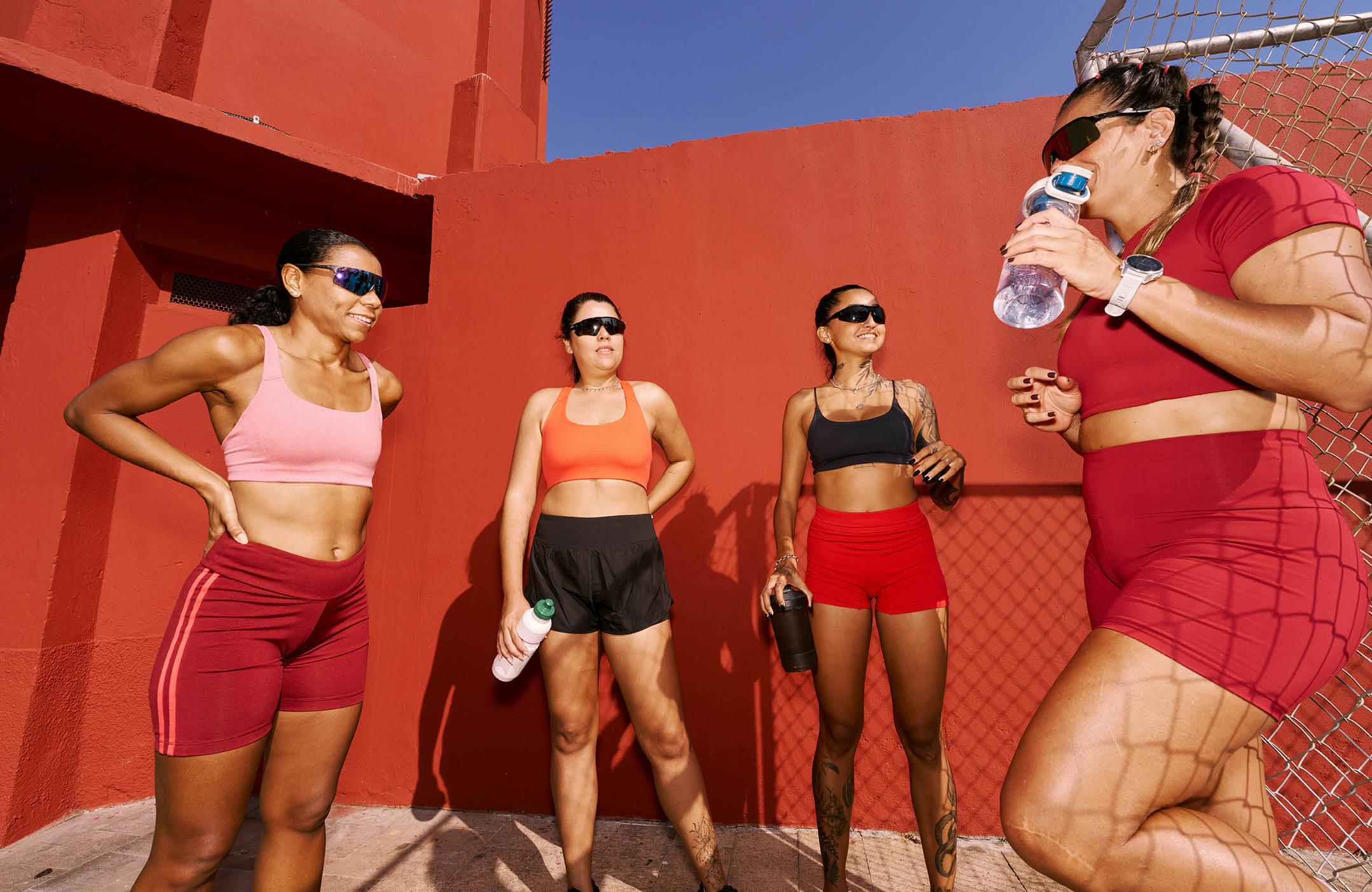
There was something about run clubs that allured me back then. First and foremost, running was no longer a solitary and masochistic pursuit (previously, I’d only run to prove something to myself and overcome any self-doubt). Secondly, it was actually just a fun way to chat with people I’d never have come across otherwise. Thirdly, we combined miles with coffee, croissants, and explored different routes I wouldn’t try otherwise. So I get it; I get the appeal! But let me tell you why I’ve now shifted my views.
Run clubs, or at least individual clubs within the field, have become a bit of a cult. Cult structures can shape our identity to the point where we become ignorant of the realities of the world. Cults can inform who you love, worship, and spend your time with, leading you to be blind to your surroundings and disregard those outside of your crew. There are several illustrations of this; take the video of Canada’s Rachel Hannah, for example. Hannah, a registered dietitian and seasoned marathon runner, pushes through a haze of hot pink after fans invade the final 5km of the course with smoke cannons and confetti. This fog of pink is, in fact, from a local run crew cheering on their “bro,” who was at the same pace as Hannah in the race. These men were completely oblivious to her, blinded by their friend, like he was a member of the clergy.
Reflecting on the post-event, Hannah shares that the guys actually apologised but says that a lesson can be learned from the ordeal regarding spectator awareness and safety. “After encountering very enthusiastic cheering that caught me and many others off guard in the last km of the race, I ask on behalf of the race organisers, volunteers, fellow runners, and other spectators that we cheer safely and off the course.”
Hannah is touching on a point that extends into other conversations around run-club culture – safety. Another anecdote from my travels across London: I was recently cycling across Blackfriars Bridge (in a cycle lane, to add) when I encountered yet another group of runners cantering across the road. Not only were they a disturbance to me, but to the traffic and pedestrians. Of course, I wasn’t going to get myself into a rage – they were just a group of people, like me, that enjoy running around London. The reality is that London isn’t always the easiest for crossing roads! I too have also almost risked my life crossing the roads here, whether on a solo run, walking, or cycling. My issue isn’t that these people were getting moving together, but that there was no policing of how this mob of 100 people were crossing the road safely. Not only were they a risk to themselves, but a risk to me and other road users. It was as if they were blinkered, following the pack like a herd of sheep—social-media-savvy sheep that were more bothered by capturing selfies together than their own safety. Ok, I sound like a dinosaur, but there is, in fact, a far more insidious side to these selfies. I introduce you to my biggest bugbear with run clubs: the social climbing, conformist superficiality that’s been brought to the running world.
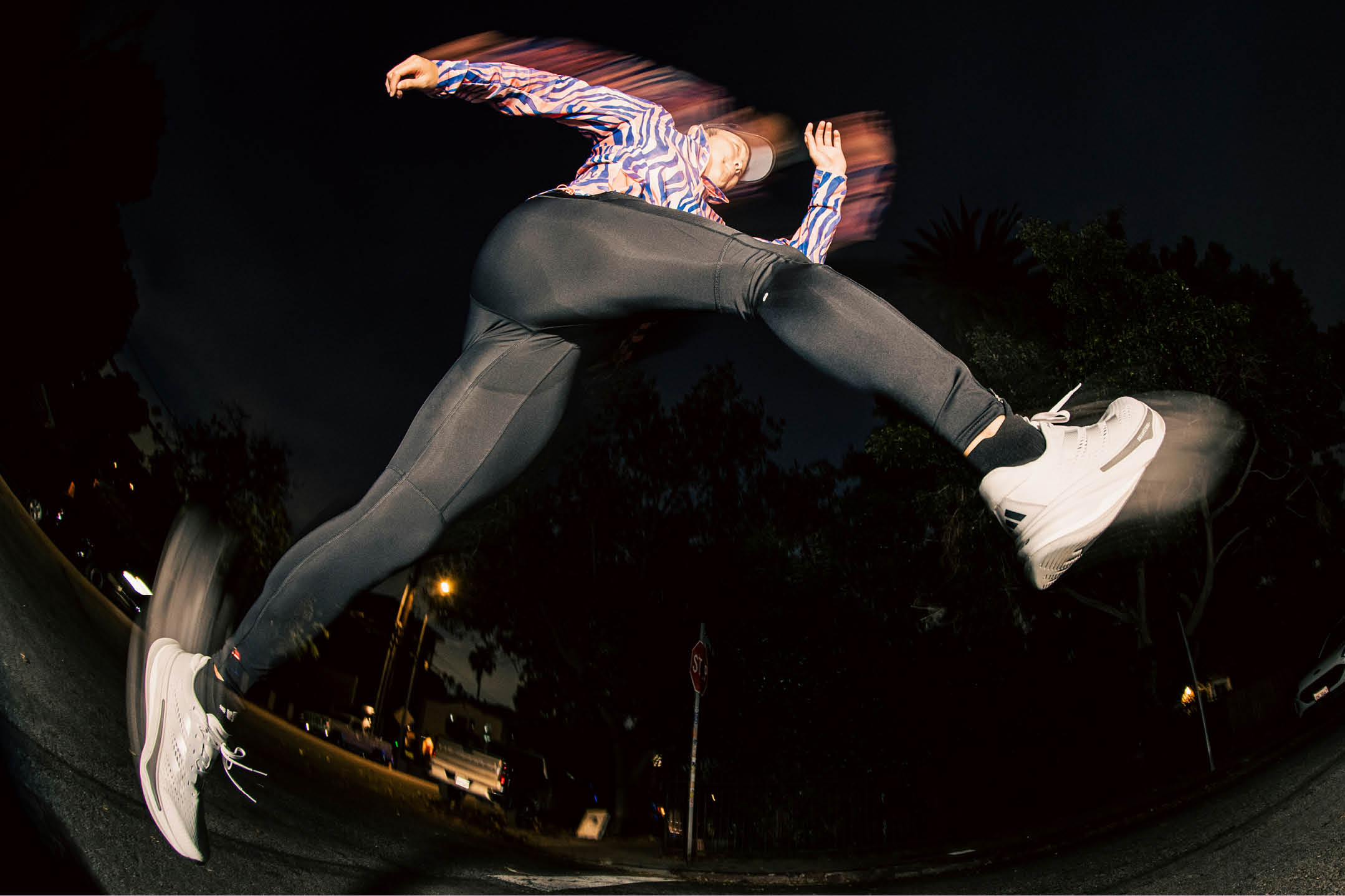
individual
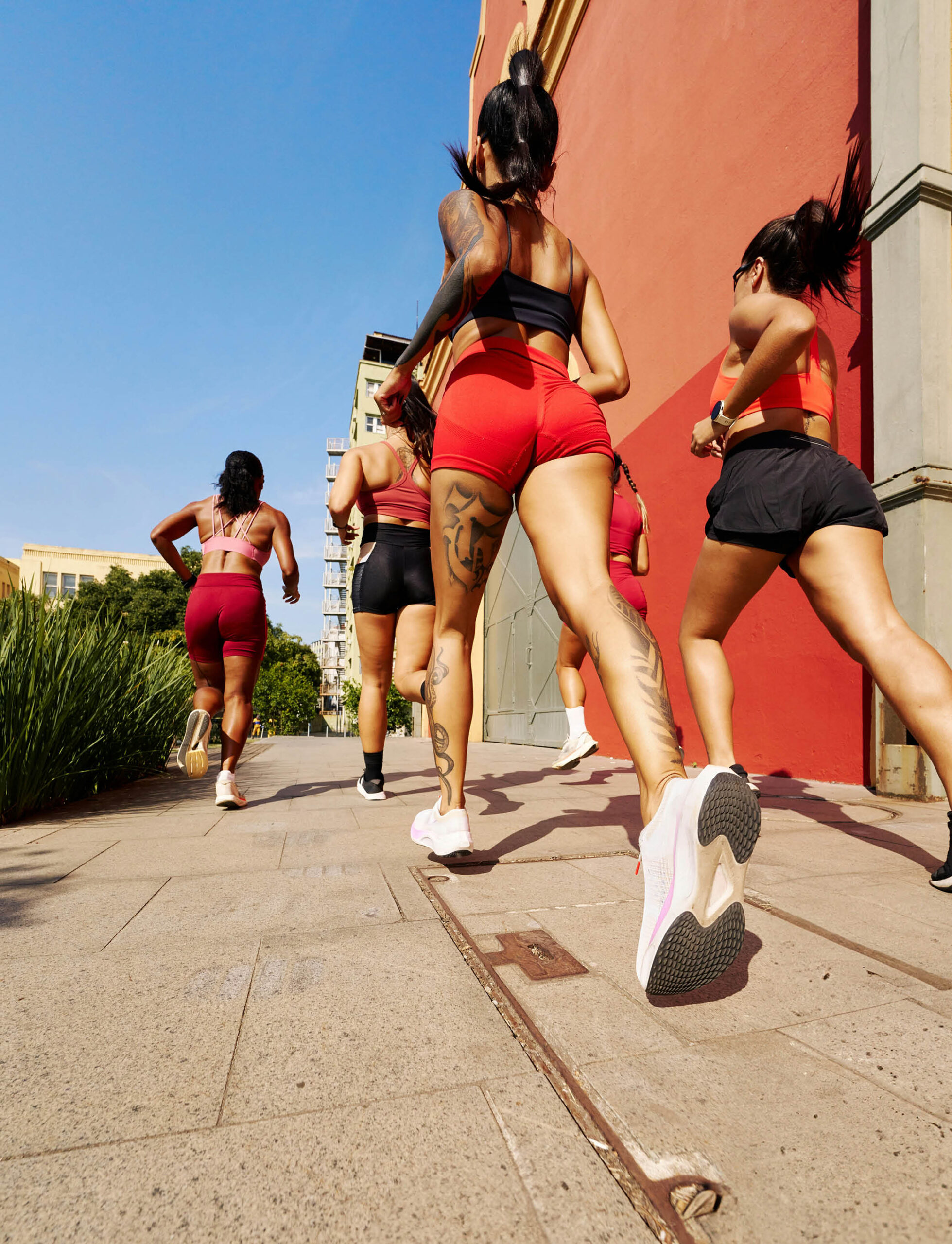
Initially, it was TikTok video where creator Sian Conway highlights an “insidiousness” tied with run club culture. Sian implies that run clubs are promoting toxic exclusivity, even comparing them to the oldest sorority, Alpha Delta Pi, of Wesleyan College in Macon, Georgia. You just have to see a two-second clip of the giddy sorority sisters stacked like a pyramid and the spitting image of each other as they welcome prospective new members, to know and feel what Sian is referring to. I urge you to watch Sian’s video not only for the video itself but for the swarm of comments she received.
“I think sometimes run clubs can feel inauthentic; they aren’t really about running, but about the status of a run club and posting it online,” says one user, and I wholeheartedly agree with it. Everyone seems so obsessed with telling everyone how they spent their Saturday morning at run club, that it almost takes away the point of why they’re doing it. The selfies, the “sexy pace” stash, the Strava kudos – have these all overridden the physical benefits of the sport? In my opinion, people are entering the sport for frivolous and instrumental reasons.
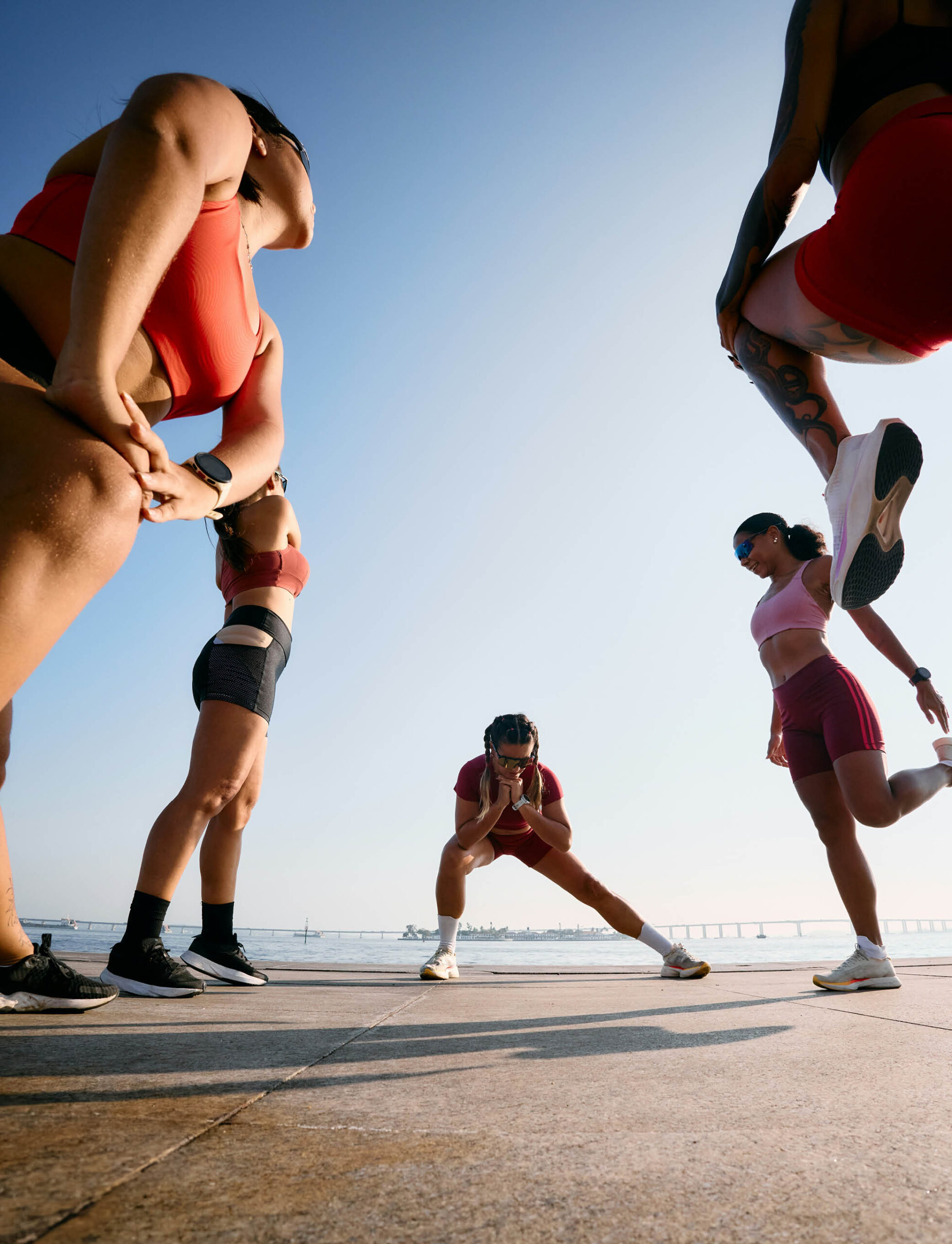
Other users are even more opinionated and tie the rise of run clubs to bigger societal questions: “I don’t know why, but I get such sinister bourgeois emptiness whenever I see them.” This links to another point that Sian touches on, which is the conformist behaviour of run club members. To be accepted into a run club, you’ve got to look like you belong. Everyone is a cardboard cutout of one another, with a degree from a red-brick university and either working in marketing or finance. There’s an irony in this Regina George “you can’t sit with us” vibe: run clubs are meant to encourage more people to get moving, to make sport more inclusive, but there’s an exclusivity to the run clubs we see on our Instagram feeds.
When it comes to joining the movement, women in particular are proving to be the most impressionable. Strava identified that women under 25 are the fastest-growing community, with a strong inclination to log their runs over other activities. Introducing more women to sport is, of course, an overwhelmingly positive thing. While running was once primarily linked to weight loss, Gen-Z have redefined it as more than just cardio; it’s now seen as so much more, serving as a means to find freedom and empowerment.
There are other motivations for women joining run clubs, making their rise a positive development. For example, women can find strength in numbers. The UK campaign ‘This Girl Can’ highlights that 46% of women adjust their outdoor fitness routines during the darker months. The heightened fear of sexual harassment and intimidation, experienced by 60% of women runners, often leads them to set self-imposed curfews. Find yourself in central London on a Friday night, it would be hard to miss the 200+ group of women and men jogging alongside booming speakers and colourful flares at the UK’s healthiest night out, Friday Night Lights. While running in groups doesn’t solve the broader societal issues of violence against women and girls, it can empower them by allowing them to take up space, move forward, and enjoy the act of running whatever time of year it is.
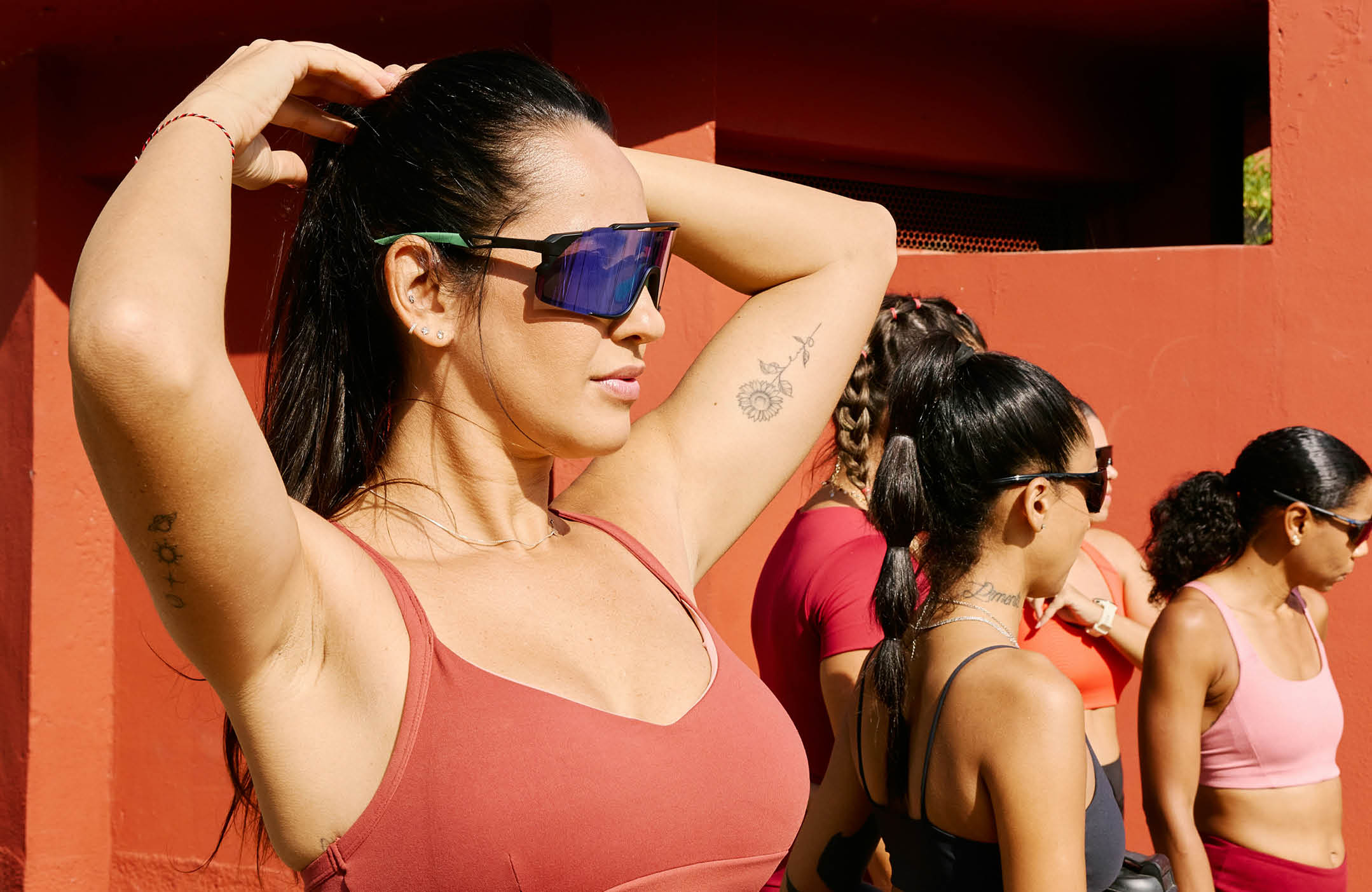
Reviewing my initial thoughts on run clubs, there’s an undeniable positive about them; they are encouraging people to connect with people in real life. Covid really drew attention to the fact that we thrive on connection, and this is something that run clubs really promote. I came across a post on Threads from US journalist and running coach Ashley Mateo, which invited a conversation around the negativity of run clubs. I found the comments most interesting, as they really challenged my initial views. As one user puts it, “People are aching for positive community, and run clubs can offer that. This is a ‘problem’ easily solved by going offline and connecting with people in real life.” Another user shared how joining her local run club helped her settle into a new city. This illustrates how these clubs assist individuals in creating connections in cities that might otherwise feel alienating, allowing them to explore new areas and find their bearings. I know first-hand that moving to a brand new city, or even a different country, can be incredibly daunting, especially when the culture is unfamiliar, and you lack any existing connections. Without work, where do you start in making those connections? Run clubs fulfil that social need, eliminating feelings of intensity or awkwardness. As one user aptly notes, “You make gentle connections: you’re not staring people in the eye while running!”
Run clubs have been around for years, but their rise on social media has brought them into the spotlight. For example, Parkrun began in 2004 with 13 runners in Bushy Park and now boasts over 2,300 events for more than 9 million users globally. While 1,750 clubs affiliated with England Athletics cater to all levels, their traditional heritage can make them unwelcoming to marginalised groups. This gap has led to the emergence of non-traditional running groups that provide a place for those who don’t see themselves in the typical runner image. Run Dem Crew, founded by DJ and youth mentor Charlie Dark, is “a running club for people who don’t consider themselves runners.” Not registered with England Athletics, they aim to differentiate from traditional clubs by focusing on mentoring young people in London and creating a safe, supportive environment to explore the city. Similarly, the virtual running community, Emancipated Run Crew, aims to increase diversity in grassroots running and support black and brown runners.
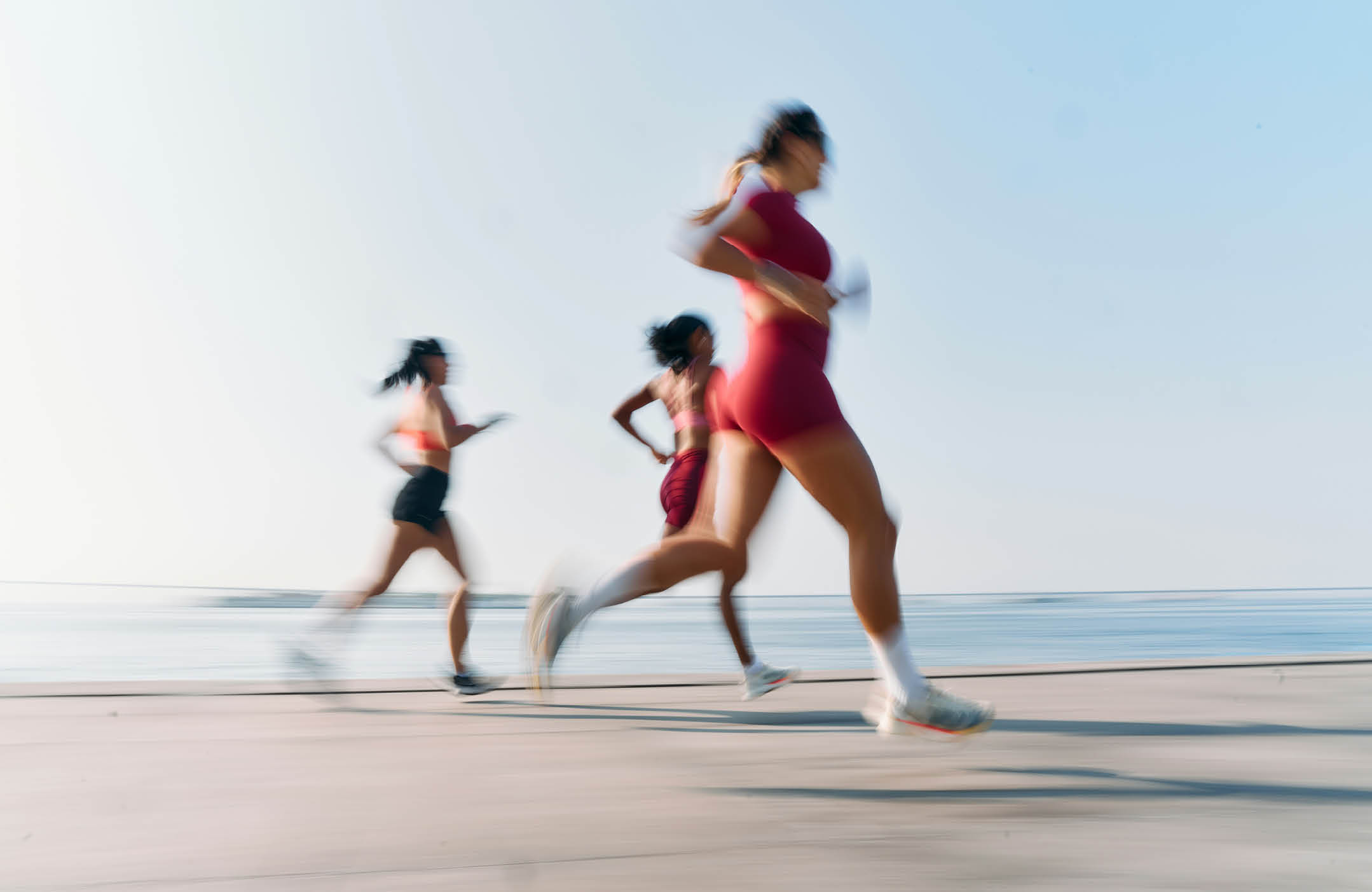
inclusivity
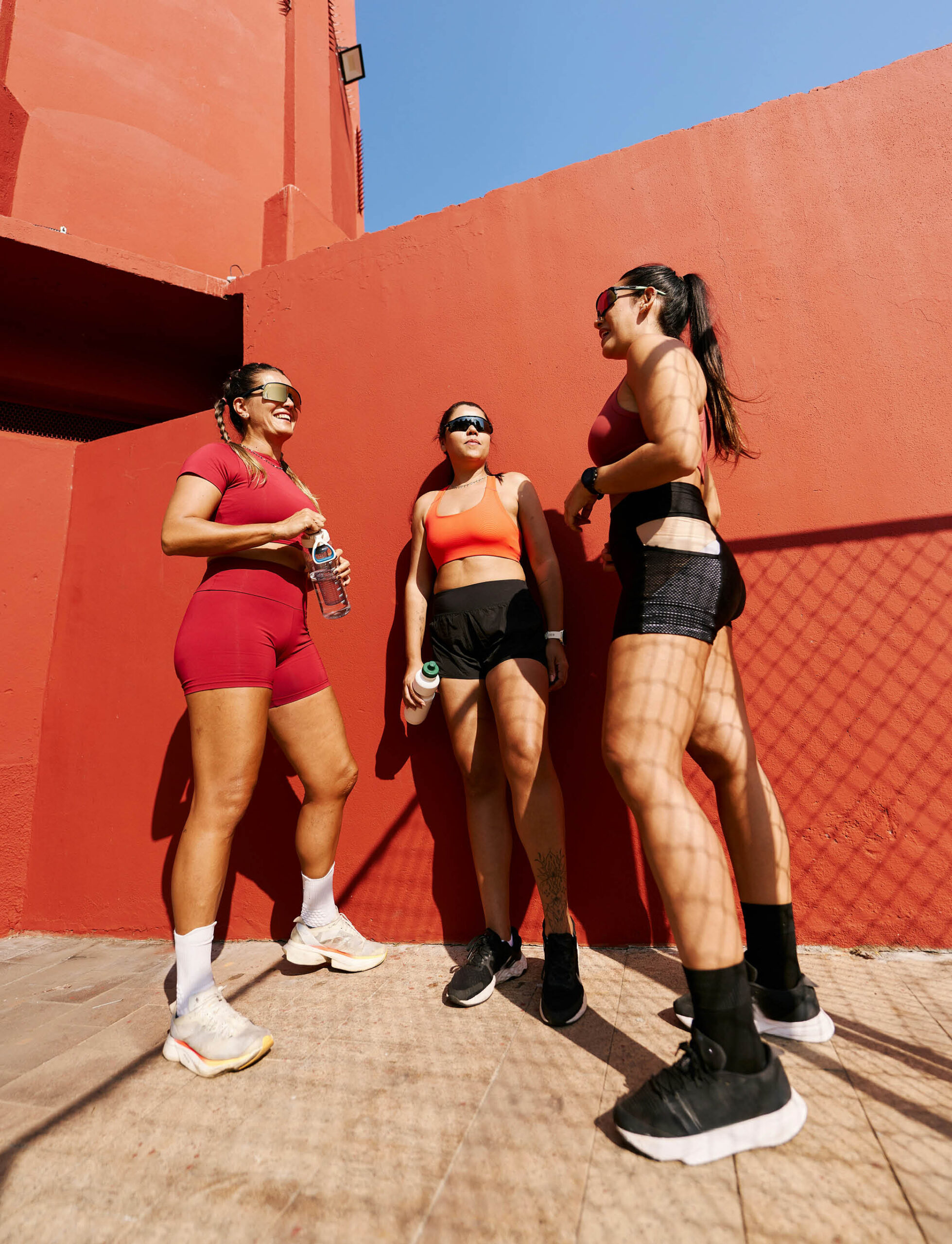
Co-founders Denise and Jules Stephenson and Trojan Gordon emphasise the importance of creating safe spaces, stating that their role is to ensure people feel supported and visible in running environments, “People often say, ‘It’s up to black and brown people if they want to run.’ We’re not saying anyone should be rolling out a red carpet. But if a woman entered a male-dominated space, would you say to her, ‘If you don’t feel safe, it’s not our problem’? Our job at ERC is to go into a space as a trusted voice, do the recce, and to report back that it’s safe to come. That enables people to feel held, seen, supported, and it also normalises our presence in these spaces so there isn’t that shock of, ‘Oh my God, there are 15 black people coming to Parkrun in Shepherd’s Bush!’”
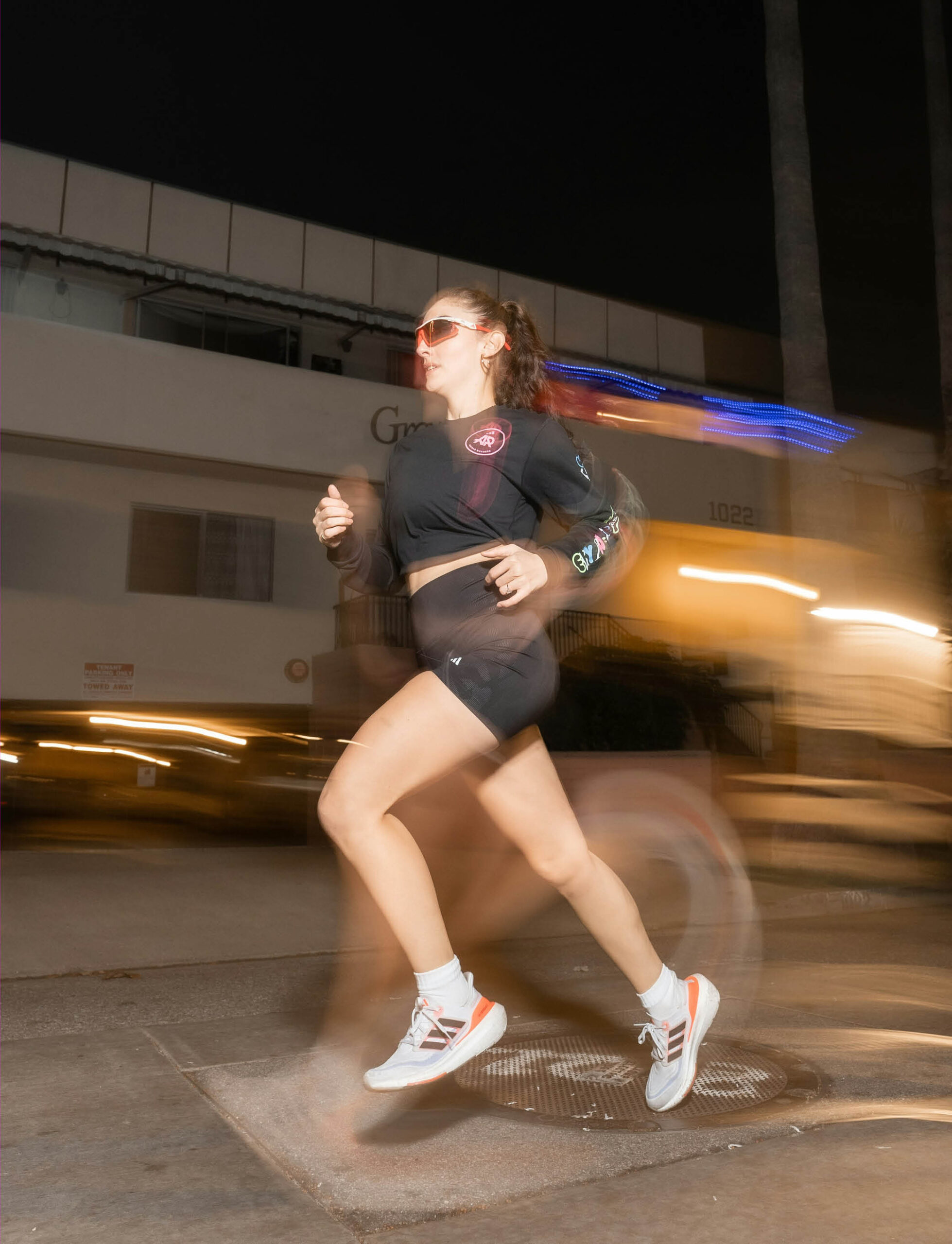
Ultimately, there are running clubs to suit all kinds of runners. You can join an unaffiliated, new breed of run club and reap the benefits of running just as much as you would at a traditional club – it doesn’t really matter where you choose; the main point is that you’re out running! These new clubs are especially important for fostering inclusivity, ensuring that everyone, regardless of background or ability, can find a welcoming community. Whether you choose to wear skinny neon Alphaflys and chase marathon PBs, or run alongside a chipper 65-year-old who’s still running 5ks for fun on the weekend, the reality is that there’s more variety than ever now, and there really is a club for everyone.
Rounding up my thoughts, I’ve learnt that it’s not actually run clubs I share a distaste for – I’d even go as far as saying I don’t hate any of the cult-esque clubs I initially had in mind. In fact, I applaud them. I applaud them for getting people out and socialising in healthy and frankly wholesome ways. The fact that people are choosing to attend run clubs and chase running clout doesn’t really matter. I can roll my eyes if I run past another wannabe influencer filming themselves head to toe in Gymshark alongside 50 other twin copies. But that’s it; it’s on me to keep running for my own reasons and not bring anyone else down just because I doubt their reasons for being a part of the sport. The fact that running is being made more accessible can only be a good thing.
Initially, I was concerned about the exclusivity of these new run clubs we’re seeing, but I now recognise that many run clubs are looking for more than miles from their running. We can’t condemn them because they play a role in fostering community, something we’ve realised is vital in a post-pandemic world. Run clubs transform solitary exercise into shared experiences, and with a variety of clubs available, from the traditional to the trendy, there truly is something for everyone.
In exploring the world of run clubs, I came across some standout groups reshaping what it means to run together. From grassroots gatherings focused on inclusivity to global networks celebrating diversity, these clubs are redefining the running scene with a focus on real community. As you embark on your own running journey, consider the values and priorities that matter most to you. Whether you’re seeking a supportive community, a competitive edge, or simply a way to connect with like-minded individuals, there’s a run club out there that’s perfect for you. Here are 10 that are worth a click.
